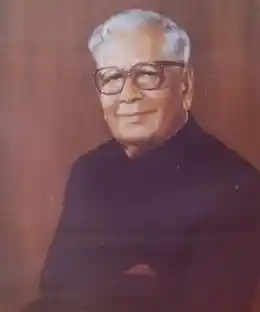Sat Seva Ratna
Of all the offices R. Venkataraman held as a Minister, his tenure as Minister of Defence served to a greater cause in India, as he transferred Dr A P J Kalam to the missile program to initiate India’s first-ever Integrated Guides Missile Development Program.

The man who left no stone unturned to showcase Indian abilities on the International podium is R. Venkataraman; Image Source: Blogspot
The eighth President of India, Ramaswamy Venkataraman was a man of great experience and acumen of law and policymaking. A lawyer by profession, he had been practising law independently since his initial days in Madras High Court. His political stance started making a space for itself in his bio since he got jailed for almost two years for participating in the Quit India Movement against British rule in India.
Subsequently, after the freedom from imperialist rule, India was now starting afresh and turning a new leaf towards building a strong foundation for the coming years. Leaders of varying political leaning assembled to push India’s growth. Ramaswamy Venkataraman was amongst such leaders who were devoted to the cause of nation-building.
Born in the Tanjore district of Madras Presidency, Ramaswamy Venkataraman kept practising as a lawyer even after the independence and was enrolled in Madras High Court by 1951, who had also served as Secretary of the Madras Provincial Bar Federation. He held various political positions before becoming the 8th President of India.
In the state ministerial posts of Madras under the chief ministerial tenure of K Kamraj and M Bhaktavatsalam, his adept decision-making ability in the sectors of Labour cooperation, Industries, Transport and Commercial, and Power created a marginal difference in uplifting the state.
He kept on climbing the ladders of political representation besides getting the imperative cabinet posts of the Ministry of Defence, Ministry of Home Affairs, and Ministry of Finance under the leadership of Indira Gandhi.
The Union Planning Commission, known for charting the plans for the upcoming years under the central government also relied on him for the areas of Industry, Labour, power, Railways, Communication, and Transport, which were duly paid attention by Venkataraman until 1971.
His eloquence in speaking can be weighed from the list of numerous international events he had taken part in, as an Indian representative. The United Nations General Assembly between the years of 1953 to 1961, the 42nd Geneva Labour Conference, Parliamentary Conference in Vienna, and United Nations Administrative Tribunal were attended by R. Venkataraman as leading Indian delegate. He also served as the President of the United Nations Administrative Tribunal between the years of 1968-1979.
Trade and commerce were his areas of intellectual interest, though his marvellous approach in initiating the Indian Missile programme under the supreme guidance of A P J Kalam remains to be one of the most iconic decisions made by him during the tenure of Indira Gandhi as the Prime Minister of India.
A recipient of Tamra Patra for his irrevocable contributions during the freedom movement, and the Soviet Land Prize for documenting the travelogue of K Kamraj in the Soviet states during his lifetime; he was given the title of Sat Seva Ratna by Shankaracharya of Kancheepuram. This was the journey of an iconic thinker and voice of development in India, Ramaswamy Venkataram who appointed three Prime Ministers during his tenure as the President of India.
The age of coalition governments was emerging in the times when India was potentially recognising the importance of democracy. A precedent of course set by the leaders of free India who collectively fought for the independence of the state.


